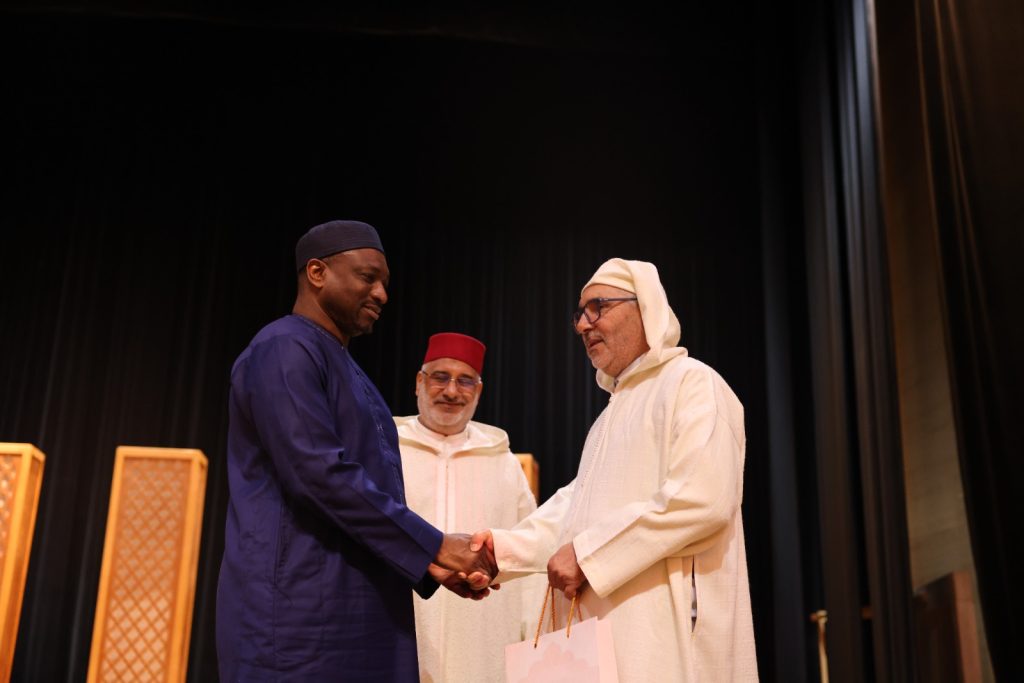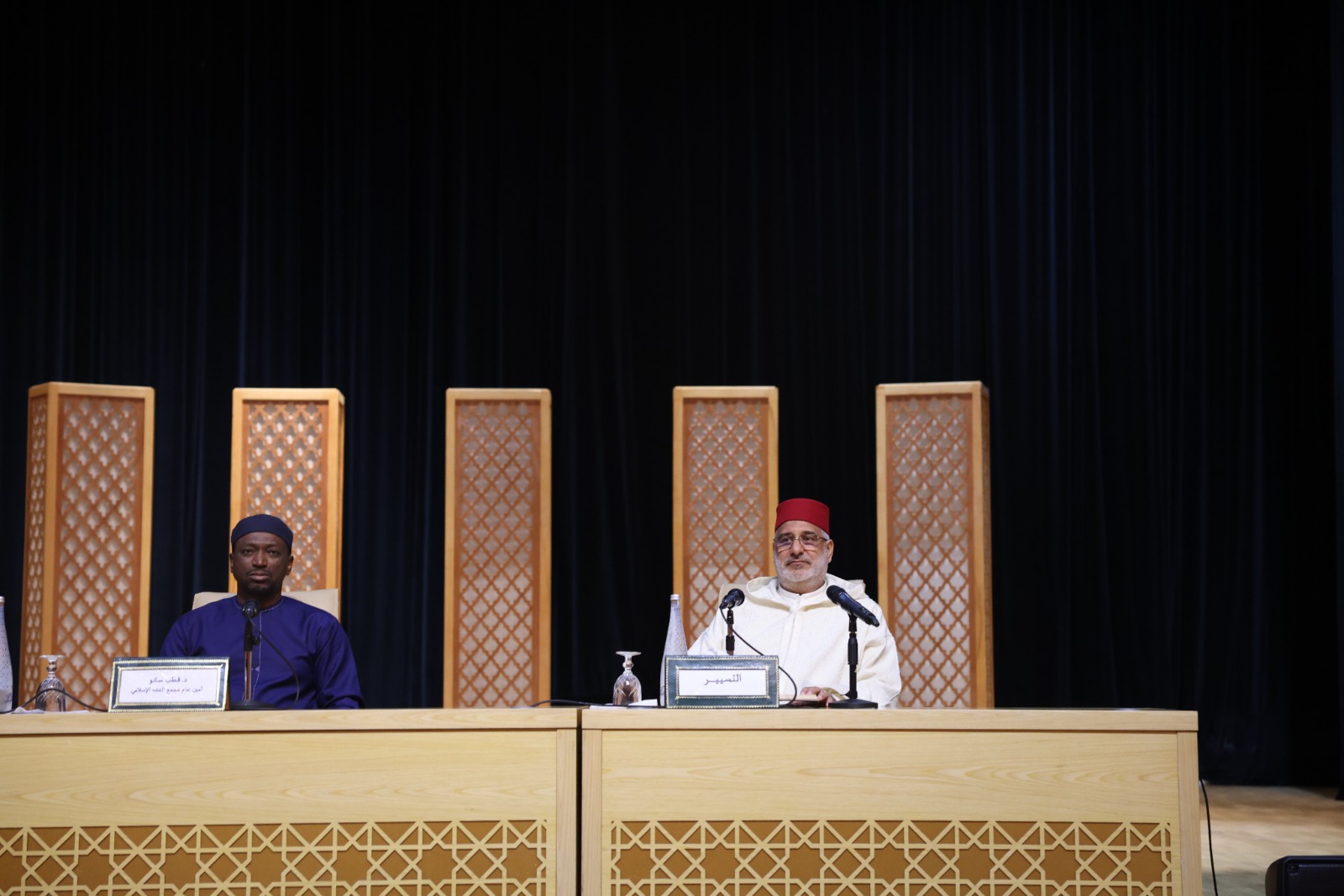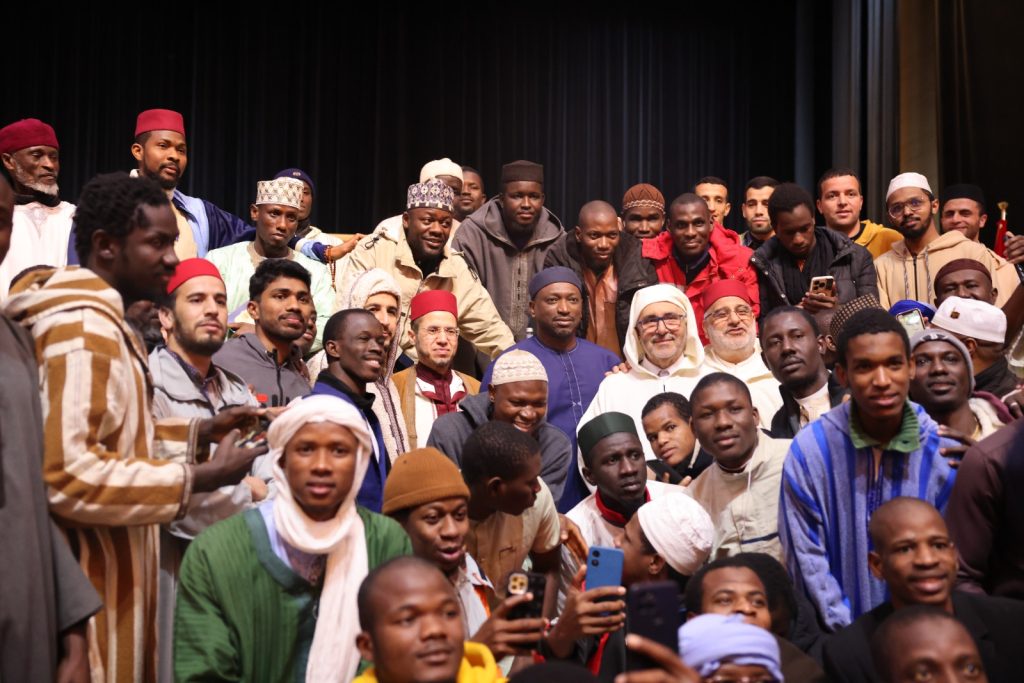
H.E. Prof. Koutoub Moustapha Sano, Secretary General of the Academy, gave a lecture entitled “The Role of Religious Workers in Addressing Contemporary Issues” at Mohammed VI Institute for Imams on Monday, Ramadan 1445, corresponding to 25 March 2024, in Rabat, the Moroccan capital.
His Excellency began his lecture by emphasizing the profound significance of the role of the religious worker in society: “The religious worker, whether imam, guide, leader, mentor, teacher or counselor, is a beacon for all nations. In a world full of problems and plagues, their constant guidance is indispensable. It is to them that the following Qur’anic verse applies: “And who is better in speech than one who invites to Allah and does righteousness and says, ‘Indeed, I am of the Muslims’” Fussilat, 41:33.
His Excellency explained that this divine and sacred mission needs components and pillars on which the religious worker in society can rely and be one of those to whom this blessed verse applies: “Invite to the way of your Lord with wisdom and good instruction and argue with them in a way that is best. Indeed, your Lord is most knowing of who has strayed from His way, and He is most knowing of who is [rightly] guided.”(al-Nahl 16:125). When dealing with these issues, the religious worker should be guided by wisdom, adhering to appropriate persuasion and arguing with what is best, and will not deviate from this clear and sound prophetic methodology that he will find no alternative. Whenever the religious worker is an imam, guide or advisor who deviates from these rules, he will not be able to achieve the objectives of the calling entrusted to him.
Furthermore, His Excellency spoke of the qualities a religious worker must possess, stating, “Religious workers such as preachers and reformers must remember that every word they utter must be chosen and assigned wisely, and that wisdom consists in putting something in its place, which means speaking if the word achieves a purpose and benefits the audience, the recipient and the community, and remaining silent if one’s word causes harm and problems to the community.”

In his lecture, His Excellency called on people to follow the example of Allah’s Messenger (PBUH) and his footsteps in his approach, as he avoided defaming those who commit a prohibition or fall into a sin, and preached to them with wisdom. Therefore, effective preaching is that which aims to reform those involved in a sin or violation, not to defame them, nor to dishonor them, nor to subject them to cruel and inhumane treatment. His Excellency also called on the religious worker to be gentle in his dealings with people, to avoid harshness and rudeness, which do not characterize him, and to use wisdom, effective exhortation and argumentation in favor of what is best, as the Prophet (PBUH) behaved and said, which was the starting point of his appeal, which made people come to him, not wanting to leave his presence, because of the gentleness they felt from him, for he was gentle, he was kind and he was compassionate.
His Excellency spoke of persuasion with what is best, which is the third and final characteristic of this religious worker, saying, “Persuasion on what is best is the most important, it is arguing with what is best, i.e. : dialogue, conversation, conversation, acculturation, reflection and study with the other, i.e. respecting the other, and having self-confidence and confidence in the other, as well as accepting difference, working and believing that the other may be right in their opinion, and that you can be wrong, this argumentation with the best makes a person rise above self-love, contempt, disdain, disrespect and condescension towards those he or she is addressing. It is the dialogue that man learns at home with his children, his wife, his parents, his brothers, his neighbors and all those with whom he comes into contact, and he argues with them in the best way”.
His Excellency explained that a true religious worker who exhibits these characteristics in his words, behavior and actions is also a competent preacher in his words, jargon and dialogue, and that he will be able to deal with the issues at stake, and that no contemporary question will pose a problem for him. In addition, His Excellency warned against rushing to issue a fatwa or judgment on issues arising in his communities, particularly on so-called general issues that are dealt with by those who are generally well-informed on ijtihad and ifta, and by the institutions that are qualified to do so, for he is not an official, nor an official mufti. His task is to educate, guide, transmit and dialogue, and he must perform these tasks wisely while adhering to honest advice and committing himself to persuade in the best possible way, because fatwa is a profession, not everyone can perform it, but anyone who wants to perform these tasks must fulfill specific prerequisites and must have the necessary knowledge, tools and means that enable him to do so, because no matter how much he knows, he remains limited in his perspectives, in his potential, in his perception of some of these issues. In this case, he needs others, such as mujtahids (scholars specialized in ijtihad) who are sufficiently qualified to practice ifta.
At the end of his lecture, His Excellency reiterated the role of the religious worker and the roles expected of him in society, namely to clarify to people and highlight the benefits that Allah has attributed to religious workers and that Allah has attributed to sincere preachers, so that society becomes a healthy society, a society of cooperation and solidarity, a society free from takfir, violence, extremism, and free from all that harms the stability and order of the Ummah, by adhering to the teachings and approach of the Prophet (PBUH).
Read Also
Lastest









